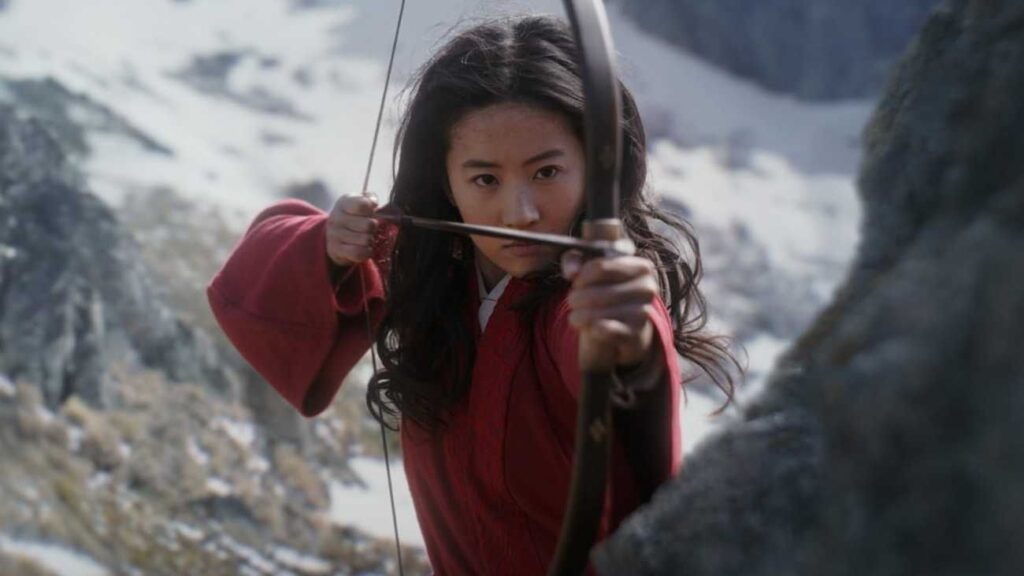
Our Take: 5/5 Stars
The highly anticipated live-action remake of “Mulan” is a far more mature adaptation than Disney’s beloved 1998 animated film, making it a masterpiece in its own right. Powerful emotional performances and themes of identity, female empowerment, and family devotion do not simply recreate the original but create a new experience. “Mulan” truly leaves viewers on the edge of their seats.
The remake tells a centuries-old Chinese tale while including Easter eggs of the original 1998 animated film. However, the realism, the presence of traditional Chinese culture and the action-packed nature of the film make it clear that Disney wanted a different take on the beloved classic with its live-action remake.
The comedic aspects of the 1998 film are replaced with emotionally charged scenes: intense aerial battles and martial arts sequences make the new movie a captivating action and adventure film. While the live action film is not a musical, the iconic song “Reflection” can be heard during moments of empowerment for Mulan, which connects the movie back to its animated roots.
Furthermore, the film’s premise has the structure of the original animated film, but further develops and adds to certain aspects of the story to strengthen its themes. Hua Mulan (Yifei Liu, “The Forbidden Kingdom”) is the eldest daughter of Hua Zhou (Tzi Ma, “The Farewell”), a man crippled by war. As an honored warrior, he was once endowed with incredible physical strength and emotional resilience; these traits were clearly passed down to Mulan, evident even when she was a child.
Mulan is naturally gifted early on, having the acrobatic and instinctual talent that would make her a great soldier. Unfortunately, as a daughter, the only way she is able to bring honor to her family is through marriage. As she matures, this duty weighs heavily on her.
However, it is evident that Mulan knows she is destined to be more than what society expects of her. A meeting with the village matchmaker illustrates that Mulan is not fit for the traditional servile role for women.
Enter the villainous Bori Khan (Jason Scott Lee, “Lilo & Stitch”), who, as the commander of the Rouran warriors, desires to avenge his father’s death and reclaim the land that was stolen from the Rouran people by the Chinese Empire. He is assisted by Xian Lang (Gong Li, “Memoirs of a Geisha”), a witch with a powerful shapeshifting ability. Lang’s personal struggle with acceptance in a world where women are subservient to men is a striking parallel to Mulan’s own battle with identity and duty. Despite being on different sides of the war, the two have much in common.
As Bori Khan leads an invasion into China, the emperor (Jet Li, “Once Upon a Time in China”) decrees that each family must send a man to serve in the Imperial Army in order to defeat the invading clan. Taking her father’s place, Mulan enlists under the masculine pseudonym Hua Jun. Her natural physical abilities and stoic nature make her a convincing soldier, and she subsequently rises through the ranks of the army, becoming the strongest soldier in her battalion.
However, this event highlights the drastic divide between the roles of men and women during this Chinese dynastic period. She is respected for her skill as a man, yet, when her true identity is revealed, she is exiled. Thus, the true battle of the movie is not between China and the Rouran warriors, but Mulan’s battle with filial piety and self-acceptance.
By revealing her truth, her position parallels Xian Lang’s. In a male-dominated society, they are outcasts because of their feminine strength. However, the emotional reconciliation Mulan has with her fellow soldiers illustrates that unlike Xian Lang, she is able to take the honorable path to earn respect by proving herself on and off the battlefield.
Mulan’s duty to her family and nation drives her to selflessly save the emperor despite having every reason to join Xian Lang and claw her way to acceptance instead. In order to save the emperor and China itself, Mulan must trust in who she is.
Along the way, Mulan meets people who help her reach her full potential. Commander Tung (Donnie Yen, “Ip Man”), the leader of the Imperial Army, encourages Mulan to hone her strength and become the warrior she was meant to be.
Chen Honghui (Yoson An, “Ghost Bride”) is Mulan’s closest friend in the army and eventual love interest, becoming the first to accept her for her strength despite her being a woman. By earning their respect, she is able to fully embrace her inner strength and true potential without fear of repercussion.
Mulan goes through dynamic development throughout the movie. She is initially portrayed as free-spirited and rash, but through the trials she undertakes, she saves China and becomes a mature and thoughtful leader. She gains respect not by following tradition, but by proving herself a warrior.
“Mulan” is inspiring for viewers of all ages because of its resonant message about gender and identity. By standing up for herself and demanding that she be heard, Mulan refuses to let societal roles confine her.
The compelling performances and impressive action sequences add to the powerful message of the movie and make it an all-around exciting film for anyone to enjoy. Stream “Mulan” now on Disney+.
